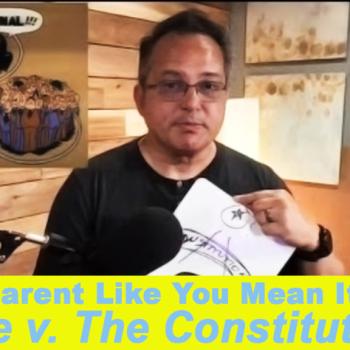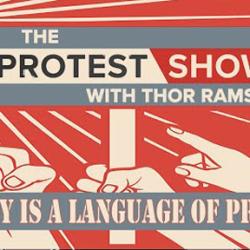In 1 Samuel 11, we see Saul being demonstrated publicly as Israel’s king by defeating the Ammonites, and then in chapter 12, Samuel offers his farewell address to the people of Israel – thus the end of the era of the judges in Israel’s history. Yet, while he no longer stands as a judge over God’s people, he still remains a prophet, speaking on behalf of the Lord.
So, as we pick up the story in chapter 13, we see Saul beginning to set up his political and military strongholds:
Saul was thirty years old when he became king, and he reigned for forty-two years.
Saul selected 3,000 special troops from the army of Israel and sent the rest of the men home. He took 2,000 of the chosen men with him to Micmash and the hill country of Bethel. The other 1,000 went with Saul’s son Jonathan to Gibeah in the land of Benjamin.
Now, the fact that they have a standing army of only 3,000 is our first clue that Israel is not a very strong nation, militarily at this time.
Soon after this, Jonathan attacked and defeated the garrison of Philistines at Geba. The news spread quickly among the Philistines. So Saul blew the ram’s horn throughout the land, saying, “Hebrews, hear this! Rise up in revolt!” All Israel heard the news that Saul had destroyed the Philistine garrison at Geba and that the Philistines now hated the Israelites more than ever. So the entire Israelite army was summoned to join Saul at Gilgal.
Here, we see Saul gathering up even his “reserve soldiers” to join in what he calls a “revolt”, which offers a clue to us that Israel had been in subjugation to the Philistines at the time. As we discussed before, the Philistines definitely had the upper hand on Israel both technologically and militarily. We also see in these verses that it’s not Saul, but his son, Jonathan, who is victorious over the Philistines at Geba. This will be a recurring theme throughout Saul’s reign.
The Philistines mustered a mighty army of 3,000 chariots, 6,000 charioteers, and as many warriors as the grains of sand on the seashore!.
Skipping to the end of the chapter for a bit, we see in verse 19 a paragraph that sets the battle in even clearer context:
There were no blacksmiths in the land of Israel in those days. The Philistines wouldn’t allow them for fear they would make swords and spears for the Hebrews. So whenever the Israelites needed to sharpen their plowshares, picks, axes, or sickles, they had to take them to a Philistine blacksmith. The charges were as follows: a quarter of an ounce of silver for sharpening a plowshare or a pick, and an eighth of an ounce for sharpening an ax or making the point of an ox goad. So on the day of the battle none of the people of Israel had a sword or spear, except for Saul and Jonathan.
Did you catch that? Not only were the Israelites vastly outnumbered, but Saul and Jonathan were the only ones wielding proper weapons! Anyone in their right mind would have been terrified if they were Saul, but I wonder if he kept in mind a previous Judge who went up against the Philistines as a military underdog. Sampson defeated 1,000 Philistines with nothing but the jawbone of a donkey.
So, with the battle now in context, let’s pick it back up in verse six:
The men of Israel saw what a tight spot they were in; and because they were hard pressed by the enemy, they tried to hide in caves, thickets, rocks, holes, and cisterns. Some of them crossed the Jordan River and escaped into the land of Gad and Gilead.
So, not only was Saul’s army inferior in regards to weapons, chariots, and numbers of soldiers, but now many of the men of his army were deserters! Imagine Israel’s soldiers being so terrified that they were hiding in wells!
But, isn’t it true that many of us run for the hills (or the wells, as it may be) even today when we fear that our culture is on the attack? We separate ourselves from all the “evil” around us, think that if we can just hide and stay away, we can raise our children in peace. But, like the Israelites who hid in the wells, I just don’t think that’s possible. I think there’s a way to affect and influence our culture without believing that we have to be in the majority. I think that there’s a fatal flaw in the thinking that we Christians need to “retake” our nation before we can make a difference. In fact, throughout scripture and history, we see that Christians have always been sent to influence as the world’s salt and light, but not to dominate culture. We are to act as a prophetic voice in our culture, but never as kings in our culture.
Consider Joseph in Egypt, or Daniel in Babylon – people who had tremendous influence, and yet were not the majority or ruling party of the land. They were, and we should be, simply Godly witnesses and influencers of a culture that was markedly different, alien, strange, and even ungodly.
I believe that if we pick up this attitude, we would be humble in our approach to those who consider themselves outside of the Church, it would cause us to be wise yet gentle, and it would cause us to see the culture around us not as enemies, but as people who simply need the Gospel of Jesus Christ.
Maybe this is a time for the Church in America to be humbled. Maybe it’s a time when we need to reassess the kind of witness that we have created in our culture. Maybe it’s time for us to rethink our strategies on how we are to influence the culture, our government, and our neighborhoods.
For more encouraging and engaging podcasts and videos, visit the E-Squared Media Network at www.e2medianetwork.com














